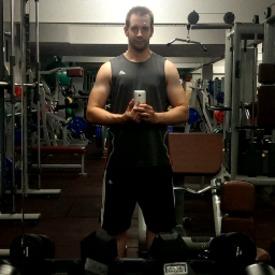Three meals or six small
Replies
-
Whichever way makes you more likely to stick to your calorie limit without fainting from hunger.0
-
I tend to eat 3 main meals a day and 2 snacks. I do this to keep my body burning calories for most of the day. My snacks are usually 100 calories or less but filling. My main meals I try to keep between 35-50 carbs. Your metabolism is what dictates how fast you burn the calories. If you ate all your calories at two meals, lunch and dinner let's say, your body will burn those slower because it has to save the energy (food you ate) until tomorrows lunch. If your body gets more meals and snacks from the same amount of food it does not try to conserve its energy (the food you eat) but goes ahead and keeps on burning energy. I hope this make a little sense to you because it took me a little bit to figure it out years ago. I just chose not to make good choice in the food I put into my body, but now I'm more than willing and it is working for me. Down 22 pounds since 01/02/14.
This is highly incorrect. Your body burns calories all day (and even when you sleep). You could be thinking about the Thermic Effect of Food, which is the spike in calorie burn when you eat. The spike is proportional to the amount of calories you've eaten and to a degree the macros you have eaten.
I frequently only eat lunch (followed immediately by my snack) and dinner (followed immediately by a snack if I have the calories). That's essentially only two meals a day. I am not very hungry in the morning and I like the full feeling I get eating two large meals. That's what keeps me on track.
Eat however you want as long as your calorie intake is appropriate for your goals.0 -
I'll refer you to Ray's hierarchy of caloric intake (patent pending). :laugh:
This is what I think is the order of importance when it comes to meal size and timing. It should be noted that this is not taking into consideration performance or athletic goals or any type of medical condition, it is purely for weight/fat loss:
1. Total caloric intake
2. Total caloric intake
3. Macronutrient composition
4. Adequate micronutrient levels
5. Total caloric intake (for further emphasis)
6. Meal timing and frequency
Mess around with meal timing to see what works for you. I've tried 16:8, one day per week fasting, big breakfasts and light lunches, 3 strict meals, 5 meals, meals and snacks...... Just figure out what works for you personally and go with it. It will undoubtedly change over time and that's ok too.0 -
Concerning meal timing...
Lyle McDonald has some great information on it here:
http://www.bodyrecomposition.com/research-review/meal-frequency-and-energy-balance-research-review.html
The take home from Lyle's article, in terms of practicality and application, would probably be this quote, this is Lyle here:
* If eating more frequently makes it easier to control/reduce calories, it will help you to lose weight/fat.
* If eating more frequently makes it harder to control/reduce calories, or makes you eat more, you will gain weight.
* If eating less frequently makes it harder for you to control/reduce calories (because you get hungry and binge), it will hurt your efforts to lose weight/fat.
* If eating less frequently makes it easier for you to control/reduce calories (for any number of reasons), then that will help your efforts to lose weight/fat
Or in other words, personal preference.
Some peer reviewed studies:
http://www.ncbi.nlm.nih.gov/pubmed/9155494
http://www.ncbi.nlm.nih.gov/pubmed/19943985
http://www.ncbi.nlm.nih.gov/pubmed/17483007
The full link...
http://www.myfitnesspal.com/topics/show/820577-meal-frequency-rev-up-that-furnace-lol
Waits for IF mob to debate... 0
0
This discussion has been closed.
Categories
- All Categories
- 1.4M Health, Wellness and Goals
- 398.2K Introduce Yourself
- 44.7K Getting Started
- 261K Health and Weight Loss
- 176.4K Food and Nutrition
- 47.7K Recipes
- 233K Fitness and Exercise
- 463 Sleep, Mindfulness and Overall Wellness
- 6.5K Goal: Maintaining Weight
- 8.7K Goal: Gaining Weight and Body Building
- 153.5K Motivation and Support
- 8.4K Challenges
- 1.4K Debate Club
- 96.5K Chit-Chat
- 2.6K Fun and Games
- 4.8K MyFitnessPal Information
- 13 News and Announcements
- 21 MyFitnessPal Academy
- 1.6K Feature Suggestions and Ideas
- 3.2K MyFitnessPal Tech Support Questions



